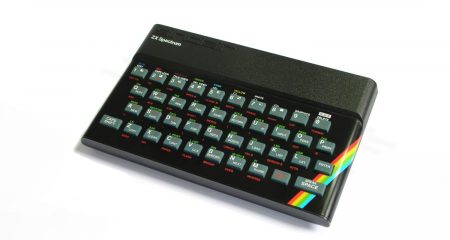
Next Wednesday, a week from now, Canada’s Research in Motion (RIM) will launch its new BlackBerry smartphones and its completely redesigned operating system, BlackBerry 10 (BB10) in one of the biggest product unveilings in the technology industry in years.
For RIM, everything is riding on a successful launch. The company has lost ground in both the consumer and business markets and its new CEO, Thorsten Heins — who replaced co-founders Jim Balsillie and Mike Lazaridis — will be desperate to show its products are both relevant and desirable.
The market has reacted well to RIM’s announcements in recent weeks regarding progress its making with the product and in getting the all-important developer community behind BB10. Its share price has climbed by 64% in the past 30 days alone and by a staggering 164% over six months. Over three months, the increase is a startling 132%. Year-on-year, though, the stock is trading flat, and over five years it’s still down by almost 80%, despite the recent advances.
Shareholders are enthused, but will consumers warm to the new platform?
RIM has been trumpeting three key features of BB10 that it hopes end users will love: “Hub”, “Peak” and “Flow”. “Hub” allows them to view all of their essential applications — and move between them — using its new single-handed swipe gestures, which it’s calling “Flow”. “Peak” allows users to see updates from other apps without leaving the one they are in.
RIM has been doing its utmost to encourage developers to build new apps or port existing ones to BB10. It says there will be as many as 70 000 apps available when BB10 launches and has gone as far as including an “app player” that makes it easier for developers to get Android apps to work on BlackBerry devices.
A crucial element in RIM’s strategy must be emerging markets like South Africa, where BlackBerrys remain popular, especially in the youth market, because of the low fixed data costs available through the BlackBerry Internet Service (BIS), and because of instant messaging service BlackBerry Messenger (BBM).

There has been speculation for months about whether RIM and its mobile operator partners will be able to continue offering BIS on the new devices. It’s been widely speculated that BIS will no longer be subject to the heavy compression that it has been historically and even that compression will only apply to messaging in future, and not to on-device Web browsing.
Yet the flat-rate fee for BIS is one of the brand’s strongest value propositions.
Steven Ambrose, MD of consulting firm Strategy Worx, says it’s unlikely that BIS will fall away for existing BlackBerry users. Rather, RIM may introduce higher-end versions of the service for BB10 devices. “From a consumer point of view, you might see a more expensive BIS package governed by a fair-use policy that RIM will gradually try and encourage existing customers to move to,” he says.
BB10 is based on QNX (pronounced Cue-nix), the same operating system that powers BlackBerry’s PlayBook tablet computer. It is thus distinct from older BlackBerry handsets, making it more likely that a different version of BIS will be necessary, Ambrose adds.
BlackBerry “has one shot” and BB10 “is it”, he says, adding that RIM has handled expectations and the roll-out of BB10 with professionalism and has managed to convince investors that the new platform “has legs”.
“[RIM has] clearly put a lot of focus on the product and on the developer community. The company has gone as far as guaranteeing developers revenue for building apps.”
In the corporate market, RIM’s traditional stronghold, Ambrose says companies want to save costs, create greater efficiency and still retain control of employee devices. “Here’s a device and ecosystem that’s comprehensive, cost effective and allows control. If you can make your employee happy with a consumer-friendly device while keeping business leaders happy, you have a winner.”
Developers
The other important leg in RIM’s revival plans is the developer community.
Grant van Wyk is head of operations at Pbel, a Johannesburg-based company that develops apps for mobile developing, including BlackBerry. He says Pbel plans to port its existing BlackBerry apps to BB10 if customers request it. Until there is clear demand for the platform, Pbel has no plans to develop new apps for BB10.
Van Wyk says porting apps to the new software appears to be “fairly painless”, and one that RIM has tried to make as effortless as possible.
He adds that RIM should ensure that the apps most often sought by consumers are available at or as close to the launch of BB10 as possible. “BB10 should even offer competitor apps like Facebook’s Messenger and WhatsApp. RIM needs to make sure those apps are available. It needs to give consumers what they want on the BB10 platform if it wants to see real uptake.” — (c) 2013 NewsCentral Media




